
What is Injury to Real Property?
Injury to Real Property in North Carolina and its Role in Family Law Cases
Injury to real property is a broad term that can involve a number of different legal issues. 
Generally speaking, it refers to intentional damage or destruction that is done to land or buildings or “realty.”
This can include anything from vandalism and arson to damaging real property. Real property includes things like houses, buildings, realty, and real estate.
The damage to real property requires wanton and willful conduct. That means it is an intentional act and not the result of an accident.
When it comes to family law cases, injury to real property can play a role in a variety of situations, from allegations of domestic violence to equitable distribution of the marital estate.
In this article, we will discuss what injury to real property is and how it may be relevant in your family law proceedings.
What is Wilfull Injury to Real Property?
In order to constitute an injury to real property, the act must be done willfully.
That is, it must be an intentional act and not an accident.
It must also be done with wanton disregard for the rights of others.
This means that the person who committed the act knew that it was wrong and did it anyway.
For example, if someone were to set fire to a house or other building on purpose, that could be considered an injury to real property.
Destroying or damaging the personal property within the interior of the building would necessarily constitute a separate criminal charge.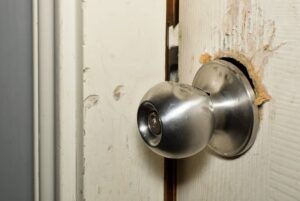
The relevant North Carolina criminal law that defines what is injury to real property may be found in N.C.G.S. 14-127. (N.C.G.S. stands for North Carolina General Statute)
It is similar in some respects to Injury to Personal Property but has some remarkable differences.
Punishments Injury to Personal Property depend in large measure on the amount of the personal property that is damaged.
ITPP (Injury to Personal Property) for items valued $200 or less is a crime, and is a Class 2 Misdemeanor. Damages to personal property valued more than $200 is a Class 1 Misdemeanor.
The NC criminal law for willfully Damaging Personal Property is defined in N.C.G.S. 14-160.
In contrast, Willful and Wanton Injury to Real Property is a Class 1 misdemeanor in North Carolina and carries with it a maximum period of incarceration (jail/prison) of 120 days.
As such, punishment under the NC misdemeanor criminal laws for a Class 1 Misdemeanor charge carries the potential for a longer period of incarceration than certain assault and assault and battery charges in North Carolina.
The consequences of a conviction, depending on the circumstances of the case, also involve the possibility of Supervised Probation, Costs of Court, and Fines.
How Does Injury to Real Property Relate to Family Law?
Injury to real property can play a role in family law proceedings in a few different ways.
While there may be issues of Marital Waste relative to Equitable Distribution, family law attorneys may immediately wish to address the possibility of domestic violence in the household or relationship.
Injury to Real Property, that is, the wanton and willful destruction of the household residence causing property damage, may be done so in an attempt to threaten, harass, and/or control the victim.
As such, it may also be a crime in North Carolina and prosecuted as such in criminal court.
What is Domestic Violence?
In order to understand how injury to real property may relate to domestic violence, it is important to understand what domestic violence is. 
The North Carolina General Statutes define Domestic Violence.
The DV statute in NC – Chapter 50B includes things like:
- Attempting to inflict bodily harm, bodily injury
- Sexual assault, sexual abuse
- Intentionally causing bodily harm, bodily injury
- Placing the victim in fear of imminent bodily harm
- Causing property damage incident to assault or assault and battery
There are many resources available to victims of domestic violence, including safe shelters and hotlines like the National Domestic Violence Hotline at (800)-799-SAFE or (800)-799-7233
Injury to Real Property as an Act of Domestic Violence
In North Carolina, injury to real or personal property can both be considered acts of domestic violence.
This means that if you are a victim of domestic violence, you may be able to obtain a restraining order against the perpetrator to protect yourself and the children in your household or care, and to guard against further property damage, assaults, and threats of harm.
If you are a victim of domestic violence, it is important to establish an attorney-client relationship with a qualified lawyer who can help you understand your individual rights and options.
We think it helps to retain a lawyer who possesses substantial courtroom experience in both family law and criminal law cases.
Criminal defense attorneys understand the process of criminal prosecution in criminal court. Family law attorneys tend to focus on issues involving Equitable Distribution, Custody, and Support.
We regularly serve as legal counsel in crossover matters, those that include both criminal allegations and their interaction with family court in Mecklenburg County, Union County, and Iredell County, North Carolina – Bill Powers, Charlotte Family Law Attorney
Criminal defense attorneys who limit their practices to criminal charges clearly understand the possible criminal sanctions; it’s important to establish an attorney-client relationship with legal counsel who further recognizes the impact of criminal allegations on restraining orders, child custody, and child support.
Please call the Powers Law Firm PA in Charlotte NC to schedule a consultation. We protect confidential or sensitive information obtained as part of confidential communications.
Our contact form sends information to an attorney on call. Our law firm will conduct a conflict check to confirm availability for legal representation.
What is a Domestic Violence Protective Order?
A Domestic Violence Protective Order (DVPO) is a civil order that provides protection from abuse by a family or household member.
The DVPO can include provisions such as no contact, stay away, and turn over of firearms. Such orders ordinarily include provisions not to “assault, harass, or threaten the victim.”
That necessarily includes not committing further acts of domestic violence, including intentional cause property damage, communicating threats, assault and battery – Bill Powers, Charlotte Domestic Violence Lawyer
It is important to know that the DVPO does give child custody and child support to the protected victim.
North Carolina General Statute Chapter 50B helps explain what is Domestic Violence in NC and the legal options available to victims.
As such, family law attorneys and criminal defense attorneys may refer to Domestic Violence Protective Orders as “50B” Orders.
Violation of DVPO – Misdemeanor Charges
The willful violation of a Domestic Violence Protective Order in North Carolina is a misdemeanor offense.
Indeed, it is classified as an “A1” criminal charge and carries with it a maximum period of punishment of 150 days in jail.
Other possible consequences if arrested and convicted include community service, fines, costs of court, anger management class, restitution, and treatment.
Class A1 misdemeanors in NC include allegations of:
- Assault on a Female
- Assault on Government Official or Law Enforcement Office
- Assault with a Deadly Weapon
- Assault on a Child Under Age 12
- Assault Inflicting Serious Injury in the Presence of a Minor
The standard of proof for a criminal case is Proof Beyond a Reasonable Doubt.
The legal standard in order to obtain a DVPO is By the Greater Weight of the Evidence.
Charges dropped by the District Attorney do not preclude the possibility of issuance of a DVPO.
Learn More
What you need to know about Communicating Threats in North Carolina
Threatening to harm or kill a spouse, child, or other family member is a criminal offense in North Carolina. 
It doesn’t matter if the threats are made in person, online, or through text messages- communications that threaten bodily harm (physical harm to another person) may be deemed criminal and result in criminal charges.
If you are being threatened by someone close to you, it is important to know your rights and take action to protect yourself and your loved ones.
In this blog post, we will discuss what constitutes communicating a threat in North Carolina, the implications of Domestic Violence in Family Court, and the legal consequences that can come with it.
What is Communicating Threats in North Carolina?
Communicating threats includes things such as:
- Threats to Kill or Physically Injure another person
- Threats to injure (physically) someone’s spouse, the person’s child, parent, or sibling
- Threats to cause physical injury to dependents
The threat may be made indirectly or directly.
This means that making a threat through text messages, social media posts, phone calls, or in-person threats all constitute communicating threats.
North Carolina Communicating Threats Law
It is important to note that the communication to physically injure someone does not have to be directed at a specific person for it to be considered a crime.
For example, if you post on social media that you are going to kill your ex-spouse, that could be considered communicating a threat- even if your ex-spouse is not specifically named in the post. 
On the other hand, exaggerated, hyperbolic statements like, “Oh, he makes me so mad I could kill him” may not necessarily constitute communicating threats.
The law requires a reasonable person would fear for their physical safety, and the person threatened believes the threat.
What does “Reasonable Person” mean?
The reasonable person standard is an objective test applied in court to determine whether the defendant’s actions would have caused a reasonable person in the victim’s shoes to fear for their safety.
It is important to note that the reasonable person does not need to actually be scared, but a reasonable person threatened believes that they were in danger of a threat of physical harm.
What is considered Domestic Violence? 
Domestic Violence is a pattern of coercive, controlling behavior that is used by an intimate partner to gain or maintain power and control over the other intimate partner.
The use of physical violence, sexual violence, emotional abuse, economic abuse, and/or threats of violence may be used in Domestic Violence cases.
Communicating Threats is often one form of abuse that is used in Domestic Violence cases.
If you are a victim of domestic violence, it is important to know that there are resources available to help you.
The National Domestic Violence Hotline provides 24-hour support for victims of domestic violence.
You can also contact your local domestic violence shelter for assistance.
If you are in immediate danger, please call 911.
Finally, if you are a victim of someone communicating threats and/or domestic violence, please call the attorneys at Powers Law Firm PA.
We may be able to provide legal assistance or point you in the right direction in the event circumstances preclude representation.
With communicating threats matters, we believe establishing an attorney-client relationship with a lawyer well versed in criminal law and well as domestic law is a good idea.
Contact us now at: 704-342-HELP
What are the Consequences of Communicating Threats? 
Communicating threats is a Class 1 misdemeanor offense in North Carolina.
This means that someone convicted of this crime could face up to 120 days in jail (incarceration).
Communicating threats charges may also carry legal consequences, including the issuance of a domestic violence protective order, and can affect child custody and visitation.
Why hiring a Divorce Lawyer is So Important
Communicating Threats is ordinarily a misdemeanor criminal charge. There are instances when other related criminal charges may be brought in coordination with allegations of Communicating Threats.
For example, in the Domestic Violence context, Communicating Threats may be one of many related criminal charges such as Simple Assault, Assault on a Female, Injury to Personal Property, Assault Inflicting Serious Bodily Injury, and Felony Strangulation in North Carolina.
What if the Threat is Made Against a Child?
When a threat is made against a child, this may also be considered child abuse under North Carolina law.
Child Abuse is generally defined as:
Physical injury, sexual exploitation, sexual abuse, or grossly negligent treatment of a child who is younger than 18 years old. It can include parents, foster parents, custodians, and guardians.
If you have been threatened by someone and you are concerned for your safety or your child’s safety, it is important to contact law enforcement.
An experienced domestic violence attorney may be able to assist you in getting a protective order to help keep you and your family safe from further harm.
The Family Courts in Charlotte and throughout North Carolina take Communicating Threats and other instances of DV seriously.
We recommend victims seek legal representation without delay.
Can a Family Law Attorney help?
Again, if you are a victim of domestic violence, we think it is important to seek legal assistance as soon as possible.
An experienced Family Law attorney can help you understand the criminal justice system and can assist you in navigating the consequences in Family Court.
Civil Contempt of Court – Support, Custody, and Family Law Issues in NC
A Family Law attorney may recommend and further assist you get a protective order (DVPO) to help keep you and your family safe from further harm.
In North Carolina, that is often referred to as a Domestic Violence Protective Order or “DVPO.” Attorneys may also refer to it as a “50B Order.”
An experienced Family Law attorney can help you understand the criminal justice system and can assist you in navigating the consequences in Family Court.
Domestic Violence can impact Child Custody and Visitation when one parent willfully threatens another parent in the presence of the child may have long-lasting consequences to the child.
Felony Assault Inflicting Serious Bodily Injury 
As you might imagine, Felony Assaults in North Carolina carry substantial consequences both in criminal court and Family Court.
An assault that results in serious bodily injury is a Class F Felony in North Carolina.
Serious bodily injury may include bodily harm that:
- Creates a risk, a substantial risk, of death
- That causes a coma, disfigurement, or another permanent injury
- That causes a protracted condition that results in extreme pain
- Protracted or permanent impairment or loss of function of any bodily organ or member
- Results in hospitalization that is prolonged
Divorce Lawyers in Charlotte – Powers Law Firm PA
Communicating Threats is an all too common aspect of family law cases in Mecklenburg County.
If you are a victim of domestic violence, it is important to seek legal assistance as soon as possible both for yourself and your children.
The attorneys at Powers Law Firm PA are experienced in handling these types of cases and can help you understand the criminal justice system and navigate the consequences in Family Court.
Learn More

Domestic Violence Protection Orders in Monroe for VICTIMS: What You Need to Know
VICTIMS of Domestic Violence – 50B Domestic Violence Protection Orders in Monroe: What You Need to Know
Domestic violence is a pervasive problem that rarely receives the attention it deserves. Union County, North Carolina, is no exception to this unfortunate reality. As legal counsel for people facing complex family issues, 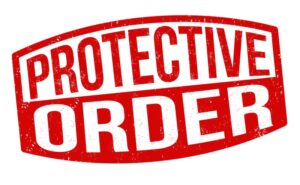 we can help file for Domestic Violence Protection Orders in Monroe.
we can help file for Domestic Violence Protection Orders in Monroe.
We can also appear with you at the Court hearing in Monroe District Court.
A recent study by the U.S. Department of Justice found that one in four women are victims of domestic violence at some point during their lives, with Native American/Alaskan Native women having the highest rates of domestic violence at 46.5% followed by African-American women at 35%.
Domestic violence is a crime that affects victims, no matter their race or socioeconomic status. People from all kinds of backgrounds seek protection orders.
The effects of domestic violence on minor children are well known and quite serious.
Obtaining a protection order against an abuser may begin first by filing ex parte Complaint and Motion with the Clerk’s Office.
Ex Parte Domestic Violence Protection Orders in Monroe
Family law attorneys, law enforcement officers, and court personnel may refer to a temporary protection order as a “10-day Order” as a ” Ex Parte 50B.”
DVPO’s are available in District Court in North Carolina to assist victims of domestic violence as a means of obtaining immediate help and protection from the person who has been terrorizing them.
They also can serve as a way for law enforcement to respond to complaints of DV, especially in instances of enforcing violations of a no contact Order.
Once an ex parte Protection Order is granted, which is a type of temporary restraining order, “Service of Process” begins.
That’s where the representatives from the court system “serve” the abuser with official notice of the civil lawsuit.
That’s also when they are officially advised of the protection order process and court hearing date.
What happens if someone violates a DVPO?
Once served, violation of even a temporary restraining order, specifically the “ten day ex parte protection order” is a serious criminal offense.
A 50B Order in civil court is separate and distinct from criminal court. A temporary order may affect the immediate custody of minor children.
A Motion for a protection order may be accompanied by related criminal charges.
In Monroe, North Carolina, the court hearing for the DVPO is on a different day than when any charges like Assault on a Female, Communicating Threats, Stalking, and Harassing Phone Calls will be handled on a court date in criminal court.
Depending on the type of criminal charges, that may take place in District Court or Superior Court.
Who can file a restraining order in North Carolina?
North Carolina General Statute 50B-1 lays out the requirements to obtain a domestic violence  protective order. It includes things like:
protective order. It includes things like:
- The person seeking the DVPO must be in fear of “immediate serious bodily injury.” That fear can be based on either past actions, violent or threatening acts, or current threats.
- Protection Orders require one of several different kinds of relationships with the abuser. This includes current or former spouses, people who have children together, live-in partners, people involved in dating relationships, or anyone else currently residing together.
- The abuser must have committed an act of domestic violence against the petitioner within the past year. Domestic violence is defined as “any assault or physical injury resulting from sexual battery, any threat of imminent physical violence, or any physical violence committed against that person by a relative, household member, or current or former sexual or intimate partner.”
It is important to remember that domestic violence can be charged as a misdemeanor crime under NC General Statute 14-32.2(a), even if the DVPO is filed at the magistrate level at the country courthouse.
This means that even if you are successful in obtaining an order for protection, the abuser may still be prosecuted criminally. Entry of a Domestic Violence Protection Orders in Monroe does not affect the criminal case. The dismissal of protection orders does not result in an automatic dismissal of criminal charges pending at the Union County courthouse.
What is the process for getting a Domestic Violence 50B restraining order in Monroe NC?
The process for obtaining a Domestic Violence 50B protective order is relatively straightforward. 
Fill out paperwork:
The petitioner should ask the court clerk at the Union County Courthouse in Monroe to provide them with a Complaint and Motion for Domestic Violence Protective Order (Form AOC-CV-303).
Although it may seem daunting, the petitioner need only complete Complaint and Motion, which may include a short statement describing why they seek protection from intimate partner violence.
Only the court may extend a 10-day temporary restraining order to a one year order.
Issues regarding permanent child custody, child support, and long term visitation of minor children are often resolved through a civil filing under Chapter 50 of the general statutes.
Attend Court – Hearing for Protective Order:
If the Complaint and Motion for Protection Order is uncontested by the abuser, then a hearing may be avoided altogether.
How to File a Complaint for Domestic Violence Protective Order
The temporary order may be extended, when legally and factually appropriate, unless the complaining party not longer feels they need protection or requests the protection Order not be extended for an additional period of time.
If there is a contested DVPO, both the petitioner and defendant appear before a judge. At this hearing, each party can make their case for why the protective order should be ordered or denied.
** NOTE: A Motion and Complaint for Domestic Violence Protective Order (DVPO) does not always result in an Order of Protection or Protective Order. The matter may be set for further hearing by a District Court Judge hear the matter and make Findings of Fact and the issuance of a protective order as appropriate.
Domestic Violence Protective Orders are an important way to stop acts of DV and obtaining immediate protection from the person who has been inflicting pain and fear.
For more information regarding Domestic Violence Protective Orders or any other family law issues such as child support or the protection order process, contact our knowledgeable Monroe family law attorneys for an initial consultation.
We represent clients in Union County, including all of the following cities: Monroe, Waxhaw, Indian Trail, Wingate, and Weddington, North Carolina. We also serve clients throughout the surrounding counties of Mecklenburg County (Charlotte) and Iredell County (Mooresville, Statesville) in both District and Superior Court.
What protections are available under a domestic violence protection order?
A domestic violence protection order (DVPO) is a court order, which means it must be obeyed and enforced by  law enforcement. If an abuser violates the DVPO, he can be arrested for a crime and subsequently prosecuted.
law enforcement. If an abuser violates the DVPO, he can be arrested for a crime and subsequently prosecuted.
In addition to having criminal sanctions for any violations of a DVPO, abusers may also face consequences at the civil level.
Since domestic violence is a form of intentional tort, an abuser may be sued for monetary damages in a civil court case by his victim.
A DVPO can be granted against someone who is an “intimate partner” or has lived with or has had a dating relationship with the petitioner.
If the abusive relationship involves a family member, like a spouse or ex-spouse, child, stepchild, parent, stepparent, grandparent, sibling or stepsibling of the petitioner; then they may be subject to DVPO protection.
What is covered by a domestic violence protective order?
Domestic Violence Protection Orders in Monroe usually cover and protect the victim and may include protection of minor children, as may be necessary and appropriate for their Best Interests. If a DVPO is granted on behalf of a minor child or children, then it will specifically say so in writing.
Instructions for filing for a DVPO in North Carolina
The DVPO is written to help keep you (and your kids) safe from future harm by the abuser. Some of the more common protections that are included in a DVPO may include:
- Prohibiting abuse, including physical, verbal, sexual assault, and emotional abuse
- Enjoining the abuser from contacting you at home or work or anywhere else you might be
- Granting exclusive use and possession of your home to you and excluding the abuser
- Allowing you to have temporary custody of any minor children
- Allowing you to have temporary use of a vehicle if necessary, including keeping the car(s) in your
If you are concerned that your ex will use firearms against you, then you should specifically request that the judge include the prohibition of firearms in your DVPO.
Protections against an Abusive Parent
How do you prepare for a domestic violence case?
Your attorney will need to know as much as possible about the violence that you have suffered through. This includes:
- Dates and times of all incidents
- Locations of those incidents
- Ages and names of children involved in the incidents
- Photographs, real evidence (like hospital records) and other documentation related to injuries sustained
- Any prior Court Orders or Permanent Child Custody ORder from other jurisdictions relating to custody or a similar ex parte order
If you have been physically abused, then your attorney will also need to know about any broken bones, black eyes, or other types of injuries. In some cases, they may even need to contact a doctor in order to get a record of the abuse.
What evidence do I need?
The more documentation and evidence of abuse that you can provide, the better your case will likely be. This includes, but is not limited to things like:
- Photos of injuries you have sustained or damage to personal property
- Hospital records related to injuries or hospitalization
- Witness Testimony —from people who can give direct evidence that they witnessed or overheard an incident of violence, threatened abuse, or saw resulting injuries of domestic abuse
- Police Reports prepared by a law enforcement officer
If you or a loved one needs help with abuse and/or protective orders, or would like to petition for a protective order, click here to schedule a confidential consultation.
The family law attorneys at Powers Law Firm, P.A. represent clients in Union County, North Carolina, who need help obtaining child custody and child visitation, want to establish or modify child support, or need help with a domestic violence order.
Information about 50B Orders in Monroe NC
What are the consequences of Domestic Violence to children?
Children witnessing domestic violence need help and support in coping with the violence they have seen and heard.
It is important to encourage your child to talk about their feelings, fears, concerns over threatened abuse, and expectations of both themselves and the abuser.
By encouraging them to express their feelings about domestic abuse you can be sure that they are getting the emotional support they need during
What are the consequences of Domestic Violence to an adult victim?
When you are the victim of domestic violence it can be physically, emotionally, socially, and financially damaging.
Financial abuse can cause many problems for your future because you will not have money to support yourself or your family.
Sexual abuse is a serious crime in North Carolina; allegations of a sex crime, sexual violence, and sexual abuse will be actively investigated by law enforcement.
What is Stalking?
Stalking is the crime of following someone around to monitor their behaviors or activities.
It can be done by repeatedly calling, texting, messaging on social media sites, showing up at your work or home, vandalizing your property and other similar actions.
The purpose of stalking is typically not for physical harm but instead to make someone feel intimidated or afraid.
If you believe you or a family member is a victim of stalking or sexual assault, contact law enforcement and file a police report.
Advise them where the abuse occurred and where the alleged abuser may be located.
Signs of stalking may include things like:
- Repeatedly calls or sends text messages.
- Sends gifts, letters, and other items to your home, school, or work without a specific request from you for them.
- Monitors your time spent on the computer, cell phone, social media sites, and other areas where you have an online presence.
- Shows up at places you are without a legitimate reason for being there. This could be your home, work during the business day, or the children’s school.
- Makes threats of harm against you, your family, pets, or property or family home
- Attempts to have an innocent person harmed if they are in a romantic or social relationship with you.
- The alleged abuser attempts to have you harmed if they are in romantic or social relationships with you.
- Conducts research on you and your home, school, work, and other areas where you spend time. This can include information from public records as well as the internet.
- Pretends to be someone else to form a relationship with you.
What are some signs that I may be a victim of Domestic Violence?
You could be the victim of domestic violence:
- If you are intimidated by your partner by him/her following you, making threats of harm.
- If your partner has a history of impulsive, violent behavior or domestic abuse towards you or a family member.
- If your partner shows jealousy of you spending time with friends and family members.
- If your partner keeps track of everywhere you go and tries to make situations where he/she can be alone with you.
- If your partner intimidates you by using physical size.
- If your partner is in violation of a civil protection order, temporary order, or any condition of release or bond or protection order set by a District or Superior Court judge.
- If your partner makes decisions for you that affect both of you or the family. For example, withholding money to buy groceries because he/she is angry with you about something unrelated.
What happens if I don’t press charges?
If the abuse is happening now and you choose not to press charges, it’s still a good idea to talk with a local domestic violence advocate or shelter representative who can help you stay safe.
They may be able to assist in putting together a safety plan for you and your children.
An attorney can explain the benefits of a long-term protection order to you and the process of seeking a temporary order at the Union County Courthouse.
Will the Judge be mad at me?
No. Judges are aware that many victims stay in abusive relationships and go back to their abusers, even after significant instances of dating violence or violence in the family home. Domestic Violence Protection Orders in Monroe are given close, careful consideration legal professionals.
Do I need an attorney?
It is not required, but it can be helpful to hire an attorney if you are seeking a temporary order or one year protective order against your abuser.
Family law attorneys can explain temporary support, temporary orders, custody issues, and visitation with your current or former spouse or co-parent.
While a trusted friend or family member may be a great resource for emotional support, only a licensed attorney can give legal advice and represent you in court in North Carolina.
Are Harassing Phone Calls a Type of Domestic Violence?
Yes, harassing phone calls can be a part of domestic violence and can lead to stalking charges.
If someone is calling at work or home, leaving messages on your answering machine, or if they’re calling you during odd hours of the night/morning it may be considered harassment.
You may be entitled to a temporary order or other protective order under Chapter 50, Chapter 50B, or Chapter 50C depending on the nature and circumstances of your individual case.
I feel like I’m in danger, what do I do?
If you are afraid for your life or feel like you are in immediate danger, call 9-1-1.
When the police arrive, tell them what’s going on and show them any evidence you have of the abuse. Also, let them know if there is a weapon in your home (or current address) that belongs to your abuser.
If there is a protection order or temporary order in place, advise law enforcement. If you have a copy of the protection order, give them a copy to review.
What are some common myths about Domestic Violence?
Myth: There’s no help available for someone who is being abused.
Reality: There are different kinds of help and support available for victims and their children.
Some people do not realize it but there are lawyers, police officers, judges, and court personnel who understand the dynamics of domestic violence and how to deal with them.
And that’s not to mention the many good support organizations throughout North Carolina.
You are not alone, help is available. That’s one reason our telephone number is: 704-342-HELP
Myth: Men who are being abused by their wives/girlfriends or who want a protection order are weak.
Reality: No one should be abused no matter their sex or background. There are thousands of men in this country who have experienced abuse in their relationships and many of them are intimidated into staying quiet.
No one should be abused no matter their sex or background. No one should be subject to a sexual assault, dating violence, or live perpetually in fear.
Myth: Domestic Violence only happens in lower-income homes/rural areas.
Reality: Anyone can be a victim of domestic violence regardless of education, race, religion, age, sexual orientation, etc., and may benefit from the proper issuance of a protection order.
Myth: Domestic violence only happens outside of the home.
Reality: A large number of domestic violence cases take place in homes while children are present. This is how they learn to act, love, and solve their problems.
Do I need a lawyer for a Domestic Violence case?
A lawyer is not required; but, if you are trying to get temporary orders or a one year protective order against your abuser, it may be helpful to hire an attorney.
Family law attorneys can explain temporary support, custody issues, and visitation with your current or former spouse or co-parent.
When is the best time to hire a divorce lawyer?
If either you or a household member is subject to abuse, we think the best time to hire a family law attorney is as early as possible in the divorce process.
That’s true even if you and your spouse can agree the terms of your divorce.
However, if one or both parties cannot agree on some issues or there are contested issues of the divorce, then hiring an attorney may be helpful to you.
We also think it’s a good idea for the parties to resolve parenting plan and child support issues, without litigation, whenever possible; but, when the parties cannot agree on these items it makes sense to contact a family law attorney in Charlotte or Monroe, North Carolina.
If you need help with your legal issue please reach out to us today at 704-342-HELP.
Please note: This information is not intended as legal advice and should not be relied on as such.
For more information on our family law services, visit our website: Charlotte-Divorce-Lawyer.com
How do divorce lawyers help?
If you and your spouse agree on all terms of the divorce, then a family law attorney can assist you preparing a Separation Agreement that might include resolving issues involving:
- Post Separation Support
- Alimony
- Equitable Distribution
- Child Custody
- Child Support
Divorce lawyers explain how court works, what to expect when going through a divorce, and how much it costs to hire an attorney. Divorce lawyers can also help file Domestic Violence Protection Orders in Monroe and guide you through the process.
If you need help with your legal issue please reach out to us today at 704-342-HELP
Prior to discussing the intricacies of your individual case, our firm will perform a “conflict check” to confirm availability of representation.
Learn More
Domestic Violence and the LGBT+ Community
According to the National Coalition Against Domestic Violence, LGBT+ persons are more likely to experience rape, physical violence, or stalking than heterosexual persons.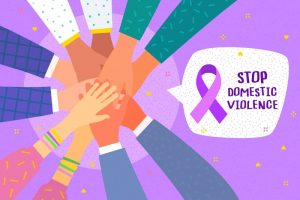
43.8% of lesbians and 61.1% of bisexual women have experienced rape, physical violence, or stalking by an intimate partner at some point in their lifetime, as opposed to 35% of heterosexual women.
26% of gay men and 37.3% of bisexual men have experienced rape, physical violence, or stalking by an intimate partner in their lifetime, compared to 29% of heterosexual men.
Despite that, the lack of apparent filings appears to indicate LGBT+ persons are less likely to seek protection or assistance, even when those protections and services are available to them.
Some victims of domestic violence fear something more than their abuser. They dread public scorn, ridicule, and bias – Bill Powers, Charlotte Domestic Violence Lawyer
Fear of Bias
In addition to the stress and anxieties of experiencing domestic violence, the pressure of being outed or having one’s sexual orientation or gender identity revealed can cause survivors not to seek assistance for fear of being labeled as a member of the LGBT+ community.
According to a 2013 study of male same-sex couples from the National Coalition of Anti-Violence Programs, only 26% of men called the police for assistance after experiencing near-lethal violence.
Additionally, in 2012, less than 5% of LGBT+ domestic violence survivors sought protective orders.
In North Carolina, same-sex couples have some protections when a relationship turns abusive or violent.
The NC Domestic Violence laws authorize a victim to seek a domestic violence protective order (DVPO), which protects domestic violence survivors from unwanted contact and many other protections such as removing the abuser from a shared home, prohibitions against possessing firearms, and temporary custody of minor children.
Specific categories of people can apply for a DVPO in North Carolina under Chapter 50B-1(b) of the North Carolina General Statutes:
- Current or former spouses
- Persons of the opposite sex who live together or have lived together
- Persons related to one another as parents and children
- Persons who have a child in common
- Current or former household members
- Persons of the opposite sex who are in a dating relationship or have been in a dating relationship. For purposes of this statute, a dating relationship is one wherein the parties are romantically involved over time and on a continuous basis during the course of the relationship.
Unfortunately, LGBT+ persons who are or were in a dating relationship are not specifically enumerated within Chapter 50B. Under a strict reading of the statute, individuals may not be able to apply for a DVPO.
However, change may be on the horizon.
A 2019 case involving a same-sex couple in Wake County has been appealed to the North Carolina Court of Appeals that may remove these exclusions for dating same-sex couples, giving all people Equal Protection under the law, as well as Due Process rights.
Domestic Violence Protective Orders
There are internal inconsistencies in the statute, causing potential problems for LGBT+ couples who are not legally wed.
LGBT+ persons who are or were married may apply for a DVPO since the law does not require spouses to be of the opposite sex.
What should I do if I’m a victim of Domestic Violence?
Until the case is resolved, LGBT persons who are survivors of domestic violence should seek medical attention for any injuries inflicted during the abuse and catalog those injuries.
Any other proof of abuse or violence, physical or otherwise, should likewise be kept.
What happens if a Restraining Order is Violated?
While DVPO’s may not be available to all LGBT persons in abusive or violent relationships, other avenues exist to end contact with the other person, such as having criminal charges brought against the other person.
North Carolina also provides for other forms of Restraining Orders and other “Civil No-Contact Orders,” such as the protections set forth within N.C.G.S. 50C.
If the survivor of domestic violence should seek a DVPO or other legal action against an abuser, they should likewise seek an experienced attorney to assist them in that process.
Charlotte Domestic Violence Lawyers
At Powers Law Firm PA we have years of experience handling North Carolina domestic violence cases and matters concerning DVPOs.
Same-Sex Marriage in North Carolina
We believe in assisting all persons with their legal issues, no matter their sexual orientation or gender identity.
Domestic violence is a difficult and serious matter, often taking a physical and emotional toll.
We encourage victims of Domestic Violence to stand up to their abuser, consider hiring a knowledgeable domestic violence attorney in Charlotte who can help you get a DVPO or consider other options to keep you safe.
With the growing acceptance and prevalence of same-sex couples, it is becoming clear that domestic violence protections will in all likelihood be extended to LGBT +individuals to the same nature and extent as heterosexual counterparts.
Learn More
Is Domestic Violence a Federal Offense?
 We’ve all heard the saying, “Don’t make a federal case out of it.” It’s meant to imply a substantial overreaction or hyperbolic assessment of a problem. In the south, we might say, “Don’t make such a fuss.” But is it really fair regarding “DV” charges in Charlotte? Is domestic violence a federal offense?
We’ve all heard the saying, “Don’t make a federal case out of it.” It’s meant to imply a substantial overreaction or hyperbolic assessment of a problem. In the south, we might say, “Don’t make such a fuss.” But is it really fair regarding “DV” charges in Charlotte? Is domestic violence a federal offense?
Should it be?
Federal Court and federal criminal charges are serious stuff. People can serve long, long prison sentences if indicted and found guilty of violations of serious federal, criminal laws.
Given the possible consequences of DV, is it appropriate to “federalize” what has for decades been handled in state court?
Criminal charges like an assault on a female, communicating threats, injury to personal property, and felony assault by strangulation are traditionally considered to be violations of the NC criminal laws.
Should that be it?
Is it an overreaction to criminally prosecute someone in both state and federal court? Does that violate the Constitution or the precept of Double Jeopardy?
Is there a difference/more serious when the relationship involves a husband, wife, boyfriend, girlfriend, or other domestic relationship?
If so, when should it be a federal offense?
Domestic Violence in Charlotte already is somewhat complicated, given the possibility of a both criminal charges and a related DVPO (restraining order) based the same allegations. That’s true whether you’re a victim or the alleged offender. It helps to receive sound legal advice irrespective of where you stand in the courtroom – Bill Powers, Charlotte Lawyer
Recent media accounts suggest Domestic Violence in Charlotte may result in the feds taking a look. While most criminal charges in Charlotte will remain within the state court system, that’s true for state felony or misdemeanor charges, there are instances where the United Government might involve itself, seeking an indictment.
At least in Charlotte, the United States Attorney for the Western District of North Carolina, Andrew Murray, seems interested in pursuing federal criminal charges in certain circumstances.
Those seem likely to be related to weapons offenses, cyberstalking, and instances of gross misconduct.
One would be remiss in failing to note that US Attorney Murray is the former elected District Attorney for the 26th Judicial District state court system (prosecutor for crimes in Charlotte-Mecklenburg) and as such, has intimate knowledge of both the strengths and weaknesses of the state court criminal justice system.
Domestic Violence Charges in North Carolina
The term “domestic violence” does not specifically refer to a certain type of charge as much as it is intended to cover some very common criminal charges that also involve a special relationship between the alleged victim and the accused.
Criminal defense lawyers sometimes view DV charges a bit differently from divorce lawyers. They tend to focus on the elements of offenses like assault, assault and battery, etc. The distinguishing factor is criminal charge involves a ‘domestic relationship’ – Bill Powers
There are special rules about bond/bail involving DV charges in North Carolina.
The DA’s Office in Charlotte has a special team of experienced prosecutors who focus on DV charges.
Related Legal Issues Involving Domestic Violence / Federal Offense
- Domestic Violence
- Domestic Violence Protective Orders in North Carolina
- Restraining Order
- Complaint for Domestic Violence Protective Orders – Filing and Pleadings
- DVPO Violation
Charlotte Divorce Lawyers – Domestic Violence – Bill Powers
Our law firm helps people on both sides of the courtroom. That means we represent both victims of domestic violence and those who may have been accused of acts of domestic violence.
Obviously, we don’t do that at the same time.
Legal representation is limited to one party in a dispute.
That’s one reason we conduct a conflict check before going into great detail into a case.
Our law firm is dedicated to helping people understand what has become, we believe, an extraordinarily complicated area of law. Understanding both sides to a dispute, and the procedural aspects of representation irrespective of the litigant, is an important aspect of any case – Bill Powers, Divorce Lawyer in Charlotte
We think it’s a good idea to take a holistic approach to analyze a case. Allegations of DV are as wide and varied as the parties and their individual relationships.
Learn More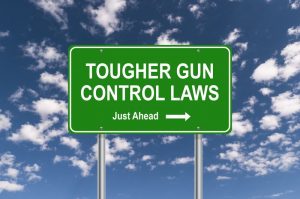
Does NC need new Red Flag Laws?
 According to the National Coalition Against Domestic Violence, there are approximately 20,000 daily calls to Domestic Violence (DV) hotlines.
According to the National Coalition Against Domestic Violence, there are approximately 20,000 daily calls to Domestic Violence (DV) hotlines.
The National Institutes of Health (NIH) reports “gun availability” results in a substantially higher incidence of domestic homicides.
In intimate partner relationships, the abusive partner’s access to a gun increases the chances of murder on women (femicide), making it anywhere to 5x – 8x more likely. When guns are involved, statistics indicate abusers inflict the most damaging and severe forms of domestic abuse.
“Abusers with guns” were substantially more likely of using a gun in the worst-case-scenario abuse incidents, resulting in femicide. At the same time, a victim’s access to a firearm may also tend to reduce the incidence of death, if only slightly. See “Risk Factors for Femicide” by the NIH.
Similarly, the relationship between mental health issues and criminality (history of criminal charges) is remarkable. There is a vast body of scientific literature documenting the very real and very substantial correlation between criminal behavior and mental illness.
- 283,000 prisoners in US jails and prisons were “mentally ill” (per a 1998 study)
- Surveys among prisoners indicate self-reporting of a diagnosed mental health issue or time in a psychiatric facility in 16% of state prisoners, 16% of jail inmates, and 7% of federal prisoners
- The incidence of mental illness is nearly 3x more likely than the general inmate population
At the same time, disorders involving the use of controlled substances are far more likely to result in criminal charges. Patients with drug or alcohol issues have a higher number of arrests over their lifetime than those diagnosed with personality disorders, affective disorders, and schizophrenia.
Indeed, in instances where substance abuse disorders and personality disorders are the primary diagnoses, those patients are 240% more likely to commit violent crimes than patients diagnosed with mental health issues without attendant substance abuse problems.
What is a Red Flag Law?
“Raising a Red Flag” has traditionally been a visible, literal warning-sign. Red flags may indicate danger, immediate peril, or live fire exercises in the military.
As it relates to family law and domestic violence, some states allow petitioners to for file for a Court Order or TRO (which stands for Temporary Restraining Order). They may also be referred to as an Extreme Risk Protection Order (ERPO).
North Carolina authorizes both No Contact Orders (Chapter 50C) and Domestic Violence Protection Orders under Chapter 50B. Domestic lawyers in Charlotte commonly refer to DVPO’s by their shorthand statutory reference: “50B Orders.”
Strictly speaking, NC has not formally adopted Red Flag Laws. Yet, there are protections afforded under the law to remove weapons in certain circumstances.
In the event an Order is issued, the Red Flag Laws generally prohibit the possession and purchase of guns and possibly ammunition.
Recently, Red Flag Laws, which are a type of gun control regulation, have been enacted nationwide with increasing frequency.
Seizures of weapons and gun laws tend to be highly controversial. Progressive-minded advocates for gun control are fans. Proponents of the 2nd Amendment despise them.
Clearly, there is not an absence of opinions on the topic.
The stated purpose of red flag legislation is to allow family members, friends, (even roommates in some instances), and law enforcement, to institute legal proceedings, in the form of lawsuits, complaints, and restraining orders, to remove weapons, by force if necessary.
While the laws vary from state-to-state, proof and testimony are often required, indicating a serious risk of harm.
As to standards of proof, the legal standard in North Carolina for a 50B Order is “by the greater weight of the evidence.” One would assume, as is the case with many civil lawsuits, that same standard would apply.
The serious risk imposed may involve potential “self-harm” (suicide) as well as physical harm and serious bodily injury to others.
North Carolina Gun Laws
NC gun laws, under the Pre-emption Sections of the general statutes, prohibit a firearms registry of any form by a government entity. There are also prohibitions against local ordinances and statutes involving the legal carrying of handguns pursuant to N.C.G.S. § 14-415.23.
Put simply the North Carolina General Assembly has in large measure preempted legislation by local agencies, reserving for itself that discretion and power.
While certain municipalities are granted certain exceptions, especially as it pertains to carrying weapons on government property and/or limitations to the concealed carry permit laws, State law supersedes, if not outright precludes, enhanced gun control laws on the local level.
There are other firearm restrictions under Article 54A of the Felony Firearms Act, which preclude gun possession involving:
- Convicted Felons
- Persons Acquitted of Crimes by Reason of Insanity
- Persons Acquitted of Crimes by Determination in Incapacity to Proceed
- Concealed Carry of Firearms without Lawful Permit
Federal Firearm Laws
- 18 U.S.C.S. 922 (g)(4)
- Prevents Possession of Firearms or Ammunition
- Adjudication as “mentally defective” or
- Committed to a mental institution
- 27 CFR 178.11
- Adjudicated a mental defective
- Danger to Others
- Danger to Self
- Lacks Mental Capacity of Manage Own Affairs
- Finding of Insanity in a Criminal Case / Criminal Charges
- Incompetent to Stand Trial
- Commitment to a mental institution
- Adjudicated a mental defective
NC Domestic Violence Protective Orders
A North Carolina DVPO allows the Court Order removal of weapons both during the temporary 10-day Order pursuant to an Ex Parte Complaint and Motion as well as an Order extending the period of restraint following a hearing on the issue.
That means a validly issued 50B Order may authorize local law enforcement to seize weapons from the Defendant.
Criminal charges are not required, although in instances of physical domestic violence a Criminal Summons or Warrant for Arrest may be simultaneously brought by the victim.
Domestic Violence Lawyers – Powers Law Firm PA
If you are a victim of domestic violence, seek medical attention if you’ve been injured or harmed in any way. There are legal options available to protect both you and your children.
You may also call us for legal advice.
If you’ve been wrongfully accused of DV or have criminal charges associated with assault, battery, communicating threats, or injury to personal property, exercise your right to remain silent and retain experienced legal counsel.
Follow any Conditions of Release or Bond. Do not violate any Court Order. Obey and follow the terms and conditions of the 50B, as directed.
Issues of domestic violence are regularly encountered in Charlotte Family Court.
Complaints and Motions for a DVPO (under Chapter 50B) may be subject to a Chapter 50 action for separation, divorce, and child custody.
We believe it’s imperative to seek legal counsel early on. Understanding your rights under the NC family laws makes for sound, smart decisions – Bill Powers, Charlotte Divorce Lawyer
CALL NOW for legal consultation: 704-342-4357
You may also email Bill Powers confidentially at: Bill@CarolinaAttorneys.com
Learn More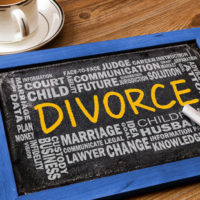
Abuse Victim Seeks to Amend North Carolina’s One-Year Divorce Requirement
 At first blush, the North Carolina law requiring a one-year separation period before a court can grant divorce has some saving qualities. One might view the law as creating the space and time for couples to reconsider divorce, which is especially important when children are involved. However, for certain individuals, the one-year waiting period is quite a burden.
At first blush, the North Carolina law requiring a one-year separation period before a court can grant divorce has some saving qualities. One might view the law as creating the space and time for couples to reconsider divorce, which is especially important when children are involved. However, for certain individuals, the one-year waiting period is quite a burden.
One-Year Waiting Period May be Incompatible for Certain Marriages
A 33-year-old woman living in North Carolina separated from her husband and was able to provide solid evidence to a court to warrant a restraining order. Included in her evidence were photos of injuries she claims she sustained from the abuse of her husband. Even with a documented history of abuse and a restraining order, the woman must wait one year before seeking a divorce. During the interim, she had to pay her husband’s health insurance. She also had to endure the psychological distress of knowing that the person who allegedly abused her was legally recognized as her husband. Possible abuse victims like this woman fear for their safety when the state requires prolonging a legal relationship, which brings them pain and suffering. The issue with the one-year waiting period is not limited to psychological pain. Like the woman’s payment of her estranged spouse’s health insurance, sustained legal recognition of the marriage carries certain obligations and requirements abuse victims should not have to maintain. In one respect, the obligation may prove unethical and dangerous.
Domestic Abuse Victim Seeks to Amend G.S. 50-6
The woman’s ordeal prompted her to create a petition requesting North Carolina Attorney General and the state General Assembly to amend G.S. 50-6. The petition seeks an amendment of the one-year waiting period for established abuse victims. The woman’s campaign garnered national attention after her story was featured on Now This, a national news outlet. The campaign sought to highlight the counterintuitive nature of the law. For example, it is rather unethical to require a spouse to remain married to an individual who has been convicted of stabbing him or her. Proponents of amending G.S. 50-6 find no defensible argument requiring an abuse victim to continue a marriage that is dangerous to his or her well-being. North Carolina is not the only state with a waiting period requirement. Other states (Illinois, Maryland and Pennsylvania) actually have a two-year waiting period if the divorce is not mutually consensual.
How Divorcing Abuse Victims Can Manage North Carolina’s One-Year Requirement
As an abuse victim seeking a divorce, the best thing you can do is get out of harm’s way. This includes obtaining a domestic violence protective order and ceasing cohabitation. Even though G.S. 50-6 is still the law in North Carolina, there are additional safeguards abuse victims can request to facilitate their safety and tamper the obligations of the legally recognized marriage. This includes requiring that law enforcement remove the defendant from a shared home, ordering the defendant to stay away from the plaintiff’s home, school or place of work, ordering the defendant to pay his or her own insurance, and ordering the defendant to forfeit any firearms or other weapons. Abuse victims must keep well-documented records of all encounters with their abusive spouse. In addition, hire an experienced family law attorney to aggressively fight for your interests during this critical juncture.
Charlotte Divorce and Domestic Abuse Attorneys
At Powers Landreth PLLC we will provide zealous representation to ensure that the law works on your behalf. Even though G.S. 50-6 is still the law in North Carolina, our experienced family law attorneys can advise you and craft legal strategies to facilitate your one-year transition. Contact us now for a consultation.
Resources:
womansday.com/relationships/dating-marriage/a16637660/north-carolina-divorce-domestic-abusive-petition/
ncleg.net/enactedlegislation/statutes/html/bysection/chapter_50/gs_50-6.html
change.org/p/north-carolina-general-assembly-domestic-violence-victims-shouldn-t-have-to-wait-a-year-and-day-to-divorce-their-abuser/u/22328283
Learn More
What You Need to Know About Domestic Violence Protective Orders
 In North Carolina, a domestic violence protective order (DPVO) is a civil relief that is filed in district court. It permits the court to order an alleged abuser to do or refrain from doing certain acts as it relates to the plaintiff. Obtaining a DPVO requires the plaintiff to show that domestic abuse is being committed. In addition, the plaintiff must show a present or past personal relationship between themselves and the alleged abuser (among other requirements). The process for obtaining a DVPO has been streamlined for average citizens to take advantage of it to protect themselves.
In North Carolina, a domestic violence protective order (DPVO) is a civil relief that is filed in district court. It permits the court to order an alleged abuser to do or refrain from doing certain acts as it relates to the plaintiff. Obtaining a DPVO requires the plaintiff to show that domestic abuse is being committed. In addition, the plaintiff must show a present or past personal relationship between themselves and the alleged abuser (among other requirements). The process for obtaining a DVPO has been streamlined for average citizens to take advantage of it to protect themselves.
How to Obtain a DVPO
A plaintiff must go to their district court to file DVPO forms. If the plaintiff requires filing outside of business hours, they may go to a magistrate. If the plaintiff requires an emergency filing, then the DVPO may advance as an ex parte filing. The ex parte filing will apply for a temporary order, and will not require the presence of the alleged abuser when the temporary order is issued. The DVPO also provides for temporary custody by the plaintiff if there are children involved. In addition, the alleged abuser must surrender all firearms. There are no fees associated with filing a DVPO in North Carolina. After filing for the DVPO, the plaintiff must take the forms to the sheriff’s department. In turn, the sheriff’s department will serve the defendant with the complaint and a summons to appear in court. Thereafter, a hearing is scheduled on the merits of the case where the plaintiff must show evidence that the alleged abusive acts were actually committed.
DVPO Requirements
To obtain a DVPO, the plaintiff must show domestic violence from an individual with whom the plaintiff has a personal relationship. In North Carolina, domestic violence is defined as attempts to cause bodily injury; intentionally causing injury; imminent fear of serious bodily injury; continued harassment that causes emotional distress, etc. These actions include those that are inflicted on a minor. In addition, teenagers who are under the age of 18 may have their parents or guardian file the DVPO on their behalf. The personal relationship requirement is widely construed to include spousal, familial, roommate and dating relationships.
The Effect of a Standing DPVO
The effect of a standing DVPO is wide-reaching. A judge can order the defendant to do certain acts and/or refrain from doing certain acts, including:
- Order the defendant to refrain from assaults, threats and harassment
- Require that law enforcement remove the defendant from a shared home
- Order the defendant to stay away from the plaintiff’s home, school or place of work
- Order the defendant to make support payments
- Order the defendant to forfeit any firearms or other weapons
- Any such order as the judge may see fit for the situation
North Carolina Domestic Violence Lawyers
Domestic violence is a serious matter. To be sure, these matters are some of the most volatile legal issues in the realm of family law. The attorneys at Powers Landreth PLLC have years of experience dealing with North Carolina domestic violence laws and DVPO issues. We know that keeping you and your family protected is top priority. As such, it is imperative to seek the assistance of an experienced DVPO attorney.
Resources:
nccourts.org/forms/Documents/696.pdf
ncleg.net/enactedlegislation/statutes/html/bychapter/chapter_50b.html
Learn More
Britny’s Law Enhances Punishment for Domestic Violence in North Carolina
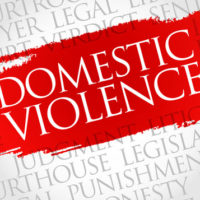 “Britny’s Law” went into effect on December 1, 2017, enhancing the penalties for domestic violence in North Carolina, according to an article by WRAL.
“Britny’s Law” went into effect on December 1, 2017, enhancing the penalties for domestic violence in North Carolina, according to an article by WRAL.
Three years ago, Britny Puryear was stuck in a vicious relationship. At that time, Britny lived with her boyfriend in Fuqua-Varina, North Carolina. Over the course of four years, their relationship became increasingly abusive. The relationship ended after a violent argument in 2014, when the boyfriend shot and killed Britny in their home.
The boyfriend was arrested and charged with second-degree murder. He pleaded guilty in court and received a 32-year jail term. The boyfriend is currently serving his sentence.
Britny’s parents were not satisfied with this outcome. They felt that first-degree murder should apply, given the abusive history of the relationship. Outside of certain exceptions under the felony murder rule, first-degree murder requires premeditation. Stated otherwise, the killer must plan out the murder ahead of time. Generally speaking, that is a difficult standard to prove in cases of domestic violence like Britny’s, where an argument sparked violence.
To continue the fight, Britny’s parents contacted the North Carolina Coalition Against Domestic Violence (NCCADV). The NCCADV is a nonprofit organization dedicated to ending domestic violence and supporting victims.
Working alongside the NCCADV, Britny’s parents were able to find a Minnesota law that classified domestic violence killings as first-degree murder. So the NCCADV used the Minnesota law as a foundation to create similar legislation in North Carolina.
The initial form of Britny’s law would have made it much easier to apply first-degree murder whenever there was evidence of repeated past abuse. As the bill worked through the North Carolina legislature, however, there were some changes. In its final form, Britny’s law requires a previous conviction for domestic violence in order for first-degree murder to apply.
Overall, Britny’s law clears the path to first-degree murder for future domestic violence killings. If the killer has a previous conviction for domestic violence involving the victim, that qualifies as premeditation. In such circumstances, the resulting charge will likely be first-degree murder, not second-degree murder.
While Britny’s parents are happy to see changes to the domestic violence laws in North Carolina, they plan to continue fighting in their daughter’s honor. They would like to see the initial form of Britny’s law resurrected and signed into law, allowing any past evidence of abuse to escalate a domestic violence killing to first-degree murder.
Do You Need Legal Assistance?
If you are struggling with domestic violence, divorce or related concerns, it can be valuable to seek legal counsel from a trusted family law attorney. Contact Powers Landreth PLLC for dedicated assistance with your case.
Resource:
wral.com/family-still-pushing-for-stricter-domestic-violence-punishments-as-britny-s-law-takes-effect/17152551/
Learn More
Candlelight Vigil for North Carolina’s Domestic Violence Victims
 A crowd gathered in Graham, North Carolina, on to remember 77 victims who died as a result of domestic violence in the state in the past year, according to an article by The Times-News.
A crowd gathered in Graham, North Carolina, on to remember 77 victims who died as a result of domestic violence in the state in the past year, according to an article by The Times-News.
A joint effort organized by the Family Justice Center and Family Abuse Services, attendees assembled in front of the Alamance County War Memorial. With a crowd bearing candles to the light the night, the name of every one of the 77 domestic violence victims rang out into the darkness.
Part of the motivation for organizing this event centers on raising awareness of the growing domestic violence epidemic across Alamance County.
What is the Definition of Domestic Violence in North Carolina?
The legislature outlined the state-specific approach to domestic violence in Section 50B-1 of the North Carolina General Statutes. There are two major elements to the crime of domestic violence – personal relationships and types of conduct.
What is the Definition of Personal Relationship in North Carolina?
One element of the North Carolina definition of domestic violence concerns personal relationships. There are six different types of personal relationships outlined under Section 50B-1.
In order to qualify as a personal relationship, the people must be:
- Married or previously married;
- A male and female who currently live or previously lived together;
- In a parent-child or grandparent-grandchild relationship;
- Parents to the same child;
- Current or previous household members; or
- A male and female who are currently or were previously in a dating relationship.
What Conduct Qualifies as Domestic Violence in North Carolina?
The other element of the North Carolina definition of domestic violence concerns certain conduct. In cases where the perpetrator and victim have a personal relationship, it is domestic violence if the perpetrator:
- Inflicts harm or injury or attempts to inflict harm or injury;
- Threatens or harasses to the point of severe emotional distress; or
- Commits a sex crime, including rape.
Section 50B-1 does offer a specific exception concerning self-defense. If a person is in reasonable danger of injury or death, then they are allowed to defend themselves. In such circumstances of reasonable self-defense, it is not considered domestic violence.
Let Us Help You with Your Case
Whether you are facing domestic violence, divorce or other aspects of family law, it is important to have professional help. Don’t hesitate to reach out to Powers Landreth PLLC in Charlotte, North Carolina for assistance with your case.
Learn More